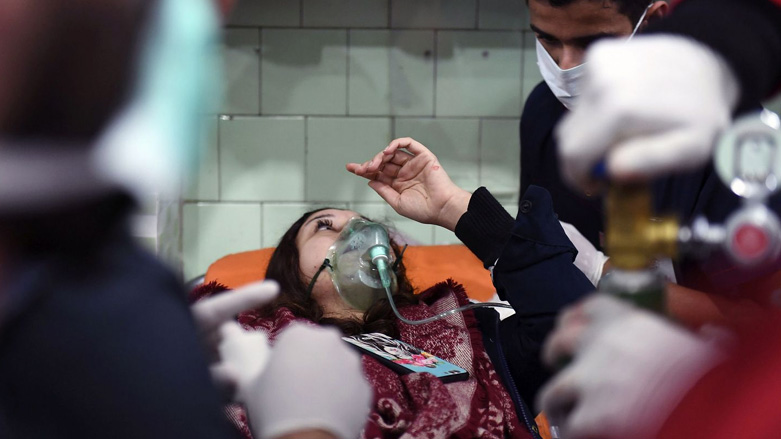US rebuts Syrian, Russian charges of rebels' chemical use in Aleppo
The US State Department issued a statement on Friday, rebutting charges made by Moscow and Damascus that Syrian rebels had used chemical weapons against civilians...

WASHINGTON DC (Kurdistan 24) – The US State Department issued a statement on Friday, rebutting charges made by Moscow and Damascus that Syrian rebels had used chemical weapons against civilians in Aleppo.
“On November 24,” Deputy Spokesperson Robert Palladino stated, “the Assad regime and Russia falsely accused the opposition and extremist groups of conducting a chlorine attack in northwestern Aleppo.”
“The United States strongly refutes this narrative,” he continued, and “has credible information that pro-regime forces likely used teargas against civilians” in Aleppo, on that day.
On November 24, Syria’s official news agency, SANA, reported that an extremist group, Hayat Tahrir al-Sham (Organization for the Liberation of Syria), had launched a chemical attack, with chlorine-filled mortar shells, in an area of Aleppo under regime control.
SANA claimed that over one hundred people were injured and that the shells were fired from areas of the Idlib de-escalation zone, which Turkey is responsible for policing.
Russia’s Defense Ministry Spokesman supported the Syrian charges, stating, “According to our preliminary information, confirmed in particular by symptoms of poisoning among the victims, the shells used to bombard residential areas of Aleppo were filled with chlorine (gas).”
Russian war planes, which have been actively supporting the regime of Bashar al-Assad since the autumn of 2015, responded to the alleged assault by bombing the “militants who had staged the chemical attack,” Moscow said.
The Syrian regime has repeatedly used chemical weapons, including sarin gas, in the country’s seven year-long civil war, as the Organization for the Prohibition of Chemical Weapons (OPCW) has determined.
The Islamic State (IS) has also used chemical weapons, including chlorine and sulphur mustard, in both Iraq and Syria. A senior IS figure, a Saddam Hussein-era intelligence officer, who was recently captured in Baghdad, confessed to involvement in the March 2016 chemical attack on Taza, a Turkmen Shiite town, south of Kirkuk.
Chlorine and sulphur mustard were used in that assault, according to a West Point study.
Peshmerga forces fighting IS were poorly equipped to deal with the chemical threat from IS, and the US-led, anti-IS Coalition is now providing the Kurdish forces with training in defense against such weapons.
Moscow responded to Friday’s statement from Washington, as its Defense Ministry issued a statement of its own, saying that it “interprets” the “hysterical [US] statement” as “an attempt to exert pressure on the OPCW in order to hinder an unbiased investigation.”
Paul Davis, who, in the 1980s, trained US troops on protection against chemical and biological agents and is now a Senior Fellow at Soran University, welcomed the US statement.
“It is extremely important to be as clear as we can, about such incidents,” Davis told Kurdistan 24. “We had to call them out on it.”
Davis stressed how dangerous unconventional weapons can be and explained that “ambiguity and confusion as to who is responsible for such attacks can get in the way of an effective and meaningful response, including retaliatory strikes.”
Gen. Larry Welch, who was close to then Secretary of Defense Donald Rumsfeld and who had served as Chief of Staff of the US Air Force in the 1980s, spoke similarly to a Pentagon study group in which this reporter participated, following the 9/11 attacks.
As Welch succinctly put it, “Without attribution, there is no deterrence.”